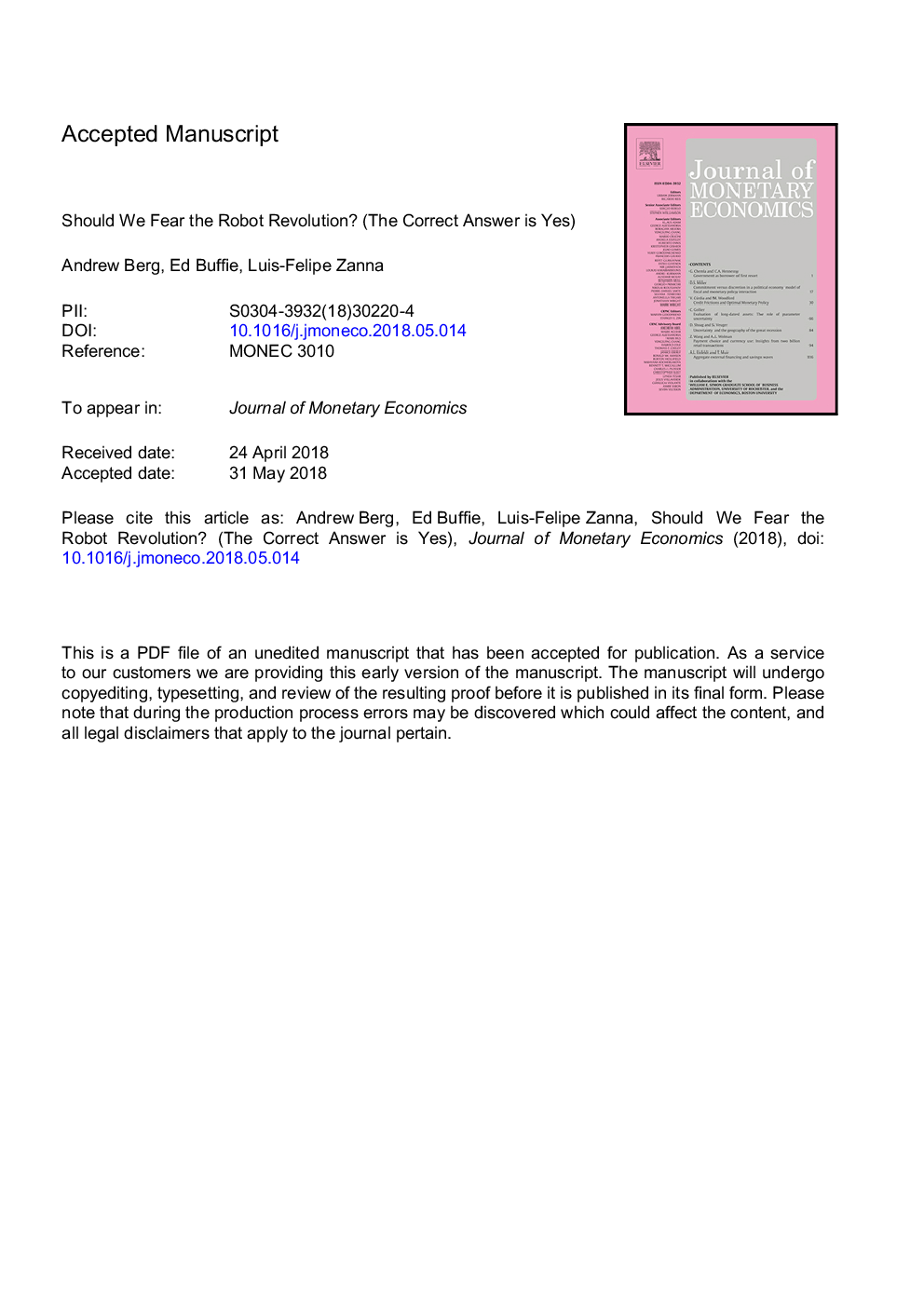| Article ID | Journal | Published Year | Pages | File Type |
|---|---|---|---|---|
| 8954611 | Journal of Monetary Economics | 2018 | 73 Pages |
Abstract
Advances in artificial intelligence and robotics may be leading to a new industrial revolution. This paper presents a model with the minimum necessary features to analyze the implications for inequality and output. Two assumptions are key: “robot” capital is distinct from traditional capital in its degree of substitutability with human labor; and only capitalists and skilled workers save. We analyze a range of variants that reflect widely different views of how automation may transform the labor market. Our main results are surprisingly robust: automation is good for growth and bad for equality; in the benchmark model real wages fall in the short run and eventually rise, but “eventually” can easily take generations.
Keywords
Related Topics
Social Sciences and Humanities
Economics, Econometrics and Finance
Economics and Econometrics
Authors
Andrew Berg, Edward F. Buffie, Luis-Felipe Zanna,
